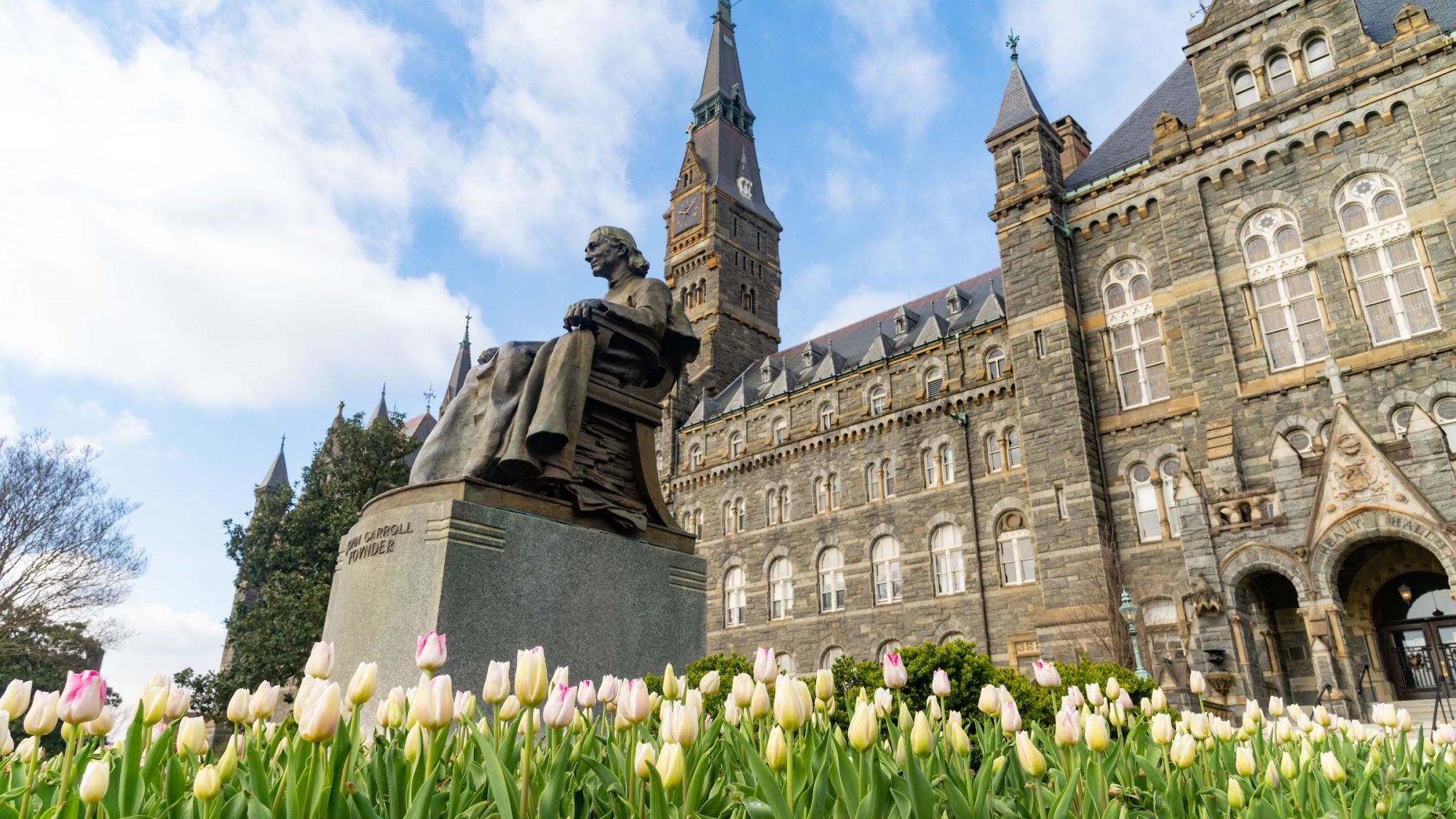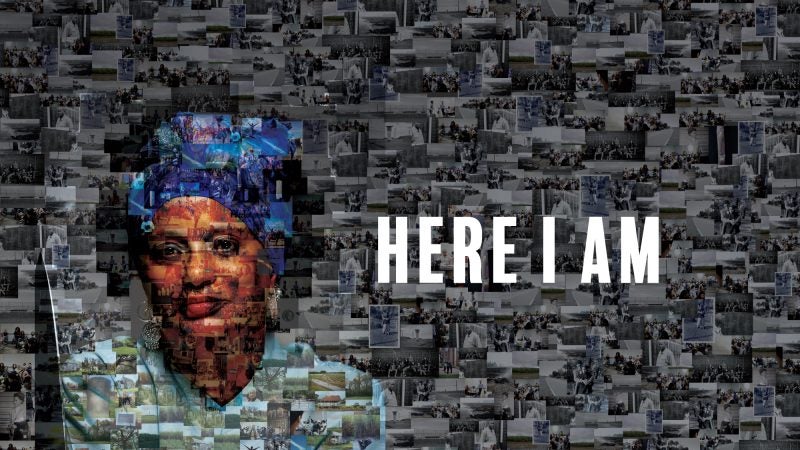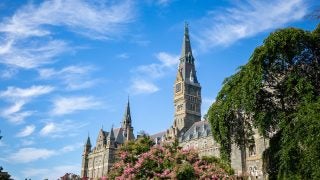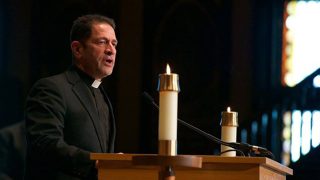Commemorating Emancipation Day
The conference was held in conjunction with Emancipation Day in the District of Columbia, which marks the April 16, 1862, signing of the DC Compensated Emancipation Act, which ended slavery in Washington, DC.
“It is paramount that in addition to examining the roots of enslavement, that we interrogate our current context – the identities of those who lead, teach, learn and provide services of food and cleaning,” said Adanna J. Johnson, associate vice president for student equity and inclusion.
Annemarie Cuccia (SFS’22), chair of GU Students for DC Statehood, moderated a session on DC statehood that highlighted both the impact of continued denial of democracy for DC residents and the progress toward full representation. Andrew Davenport (G’23), a doctoral candidate studying U.S. history and research assistant with the Georgetown Slavery Archive, introduced the panel, which connected the rights recognized on Emancipation Day with the ongoing struggle for full citizenship still being fought by DC residents today.
“Emancipation Day reminds us that a different world – a better world – is possible. You and I are charged with studying our past, analyzing our present and imagining a future free from the legacies of slavery that plague us today,” said Davenport. “The good work will not stop here. It must proceed.”
Descendants Truth & Reconciliation Foundation
Georgetown is engaged in a long-term and ongoing process to more deeply understand and respond to the university’s role in the injustice of slavery and the legacies of enslavement and segregation in our nation.
With the ongoing support and active participation of Georgetown, the Jesuits and Descendants of the 272 enslaved individuals sold in 1838 by the Maryland Province of Jesuits established a new charitable foundation focused on racial healing and educational advancement.
In addition to the work to support the foundation, Georgetown also has committed to contributing $400,000 a year – based on the amount proposed by a student referendum in 2019 – for a new reconciliation fund to support community projects to benefit the Descendant community.




